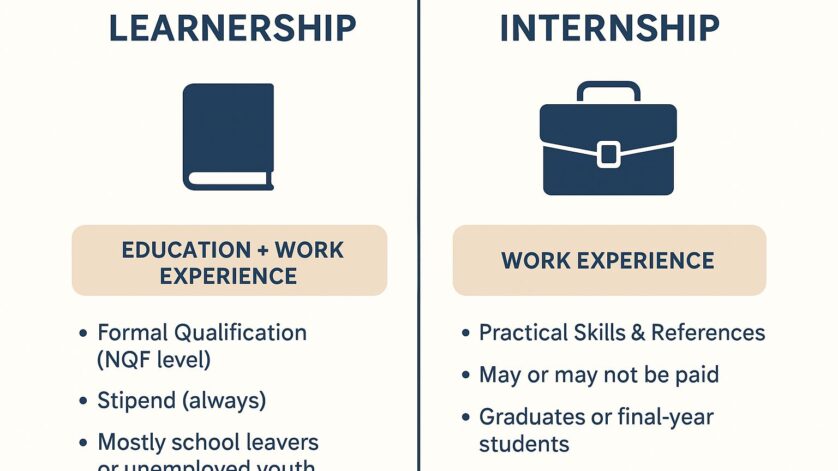Understanding Learnerships and Internships
If you’re a young job seeker, you’ve probably seen the words “learnership” and “internship” in job ads. They might sound similar, but they are not the same — and knowing the difference can help you choose the right path for your career.
Here’s everything you need to know about learnerships and internships.
What Is a Learnership?
A learnership is a structured program that combines theory (classroom learning) with practical workplace experience.
• You work while you learn.
• You receive a stipend (small monthly allowance).
• When you finish, you receive an NQF-registered qualification.
Learnerships are perfect for school leavers with little to no work experience. They are usually offered in fields like finance, IT, retail, administration, and engineering.
Benefits of a Learnership
• Gain a nationally recognized qualification.
• Get real work experience that boosts your CV.
• Build professional connections that may lead to full-time employment.
What Is an Internship?
An internship is a short-term work experience offered by companies.
• The main goal is to give you practical work exposure.
• Some internships are paid, others are unpaid.
• Usually lasts 3–12 months.
Internships are great for graduates who already have a qualification but need experience to get a permanent job.
Benefits of an Internship
• Gain valuable work experience in your field.
• Improve your chances of getting hired full-time.
• Build your network and get professional references.
Which One Should You Choose?
• If you don’t have a qualification yet → Choose a learnership.
• If you have a qualification but no experience → Choose an internship.
Both are excellent ways to get your foot in the door and build a strong career foundation.
Final Thoughts
Whether you choose a learnership or an internship, you’re taking a step in the right direction. Employers value candidates who are willing to learn and grow — and these programs are designed to prepare you for the real world of work.
